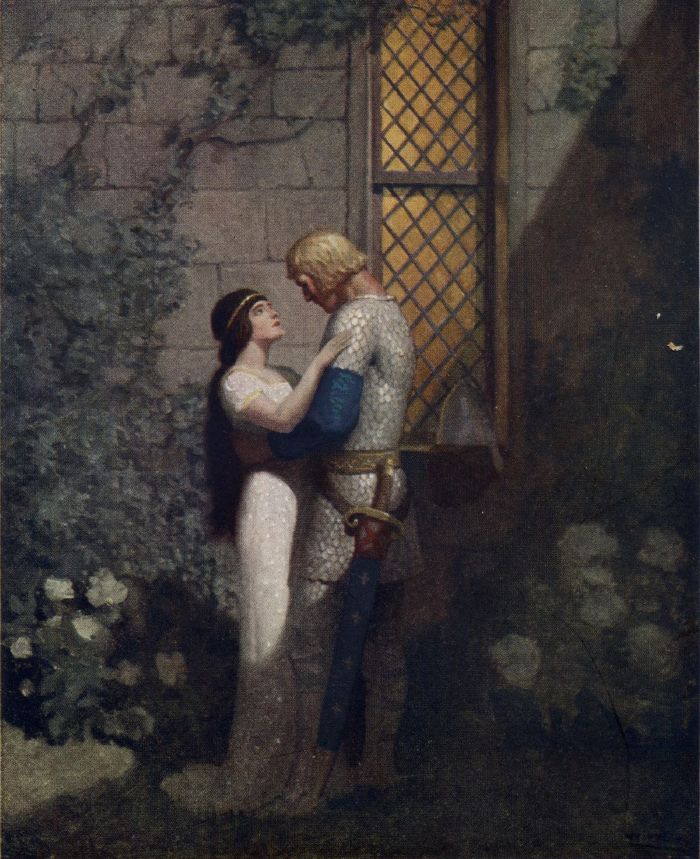Thought to be dead by a poisoned blade, our young, valiant hero, Tristan (or, in the classic English tale, Tristram), is laid to rest on a funeral vessel and cast off the shore of England, only to be found barely alive days later on the shores of Ireland by the Irish king's beautiful daughter, Isolde. Over a period of time, she nurses him back to health, their love for each other growing stronger with the rising ocean tides. However, to protect her identity and the young man who hails from her father's sworn enemy, England, she chooses to tell Tristan a name different than her own. With no knowledge of his beloved's true identity, when the the time comes for Tristan to flee Ireland, he begs Isolde to come to England with him. Obviously, and tragically, she cannot. Their romance ends with a most passionate kiss and farewell in the middle of the ocean. . .or so they think.
Tristan's unthinkable homecoming overjoys the father figure in his life who just so happens to be awaiting the throne. Soon Tristan is sent away to a tournament to win for his adoptive father the Irish princess' hand in marriage, thus uniting the kingdoms. Only, he has no knowledge that this most beautiful princess is his own love, Isolde. When he realizes what he has done to himself, he retreats into the empty shell of a man who has lost the only thing in life worth living for and helplessly watches the man who raised him fall more and more in love with his new bride, Isolde. Soon, Tristan and Isolde begin an affair which ultimately leads to the fall of the alliance between England and Ireland, the defeat of the Irish army, and horrifically, Tristan's own death.
As the movie ends, and Isolde kneels before her fallen love, helplessly watching his lifeblood drain from a sword wound in his side, she remembers a time, long ago it seems, when she revived Tristan for the first time. She recalls the words she read to him as his last labored breaths escape his dying lungs-- "My face in thine eye, thine in mine appears, and true plain hearts do in the faces rest; where can we find two better hemispheres without sharp north, without declining west? Whatever dies, was not mixed equally; If our two loves be one, or thou and I love so alike that none can slacken, none can die."
Isolde lost. She lost, and incredibly so. But she also loved incredibly so. The moments spent with her true love were the happiest moments of her existence, and this is evident in the way she gazed into her lovers eyes while responding to Tristans suggestion of their departure with the words "It's like asking me to stop breathing." So what is one to do? Loving and losing ends in heartache, but so does dying alone. Although Isolde's unmendable heart presumably lies shredded for the rest of her life, she could survive with the memories of Tristan's love. When the pain became too much to bear, she could always turn her thoughts to his affections. But, there would be no pain if there had been no Tristan. But if there were no Tristan, there would be no love, and without love, what can be said about life? Without love, life would be but a rotting carcass of hum-drum and everyday tasks. Without passion, beauty, and the longings of the heart, what has one to yearn for? To strive for? To devote a life to? Nothing. Without love, life is nothing. To love and lose is superior because at the end of your life, you have something to hang your hat on. "Yes, I loved!" You can say. "I loved and I loved with every ounce of passion in my soul. I loved until my heart broke at the mere suggestion of losing the one I loved. And losing that, losing love, was the most painful thing I've ever been through, but yet the memories of it revive me. They hold me up and they sing me out of the darkness my loss casts me into. I loved and I lost, but I lived. And I lived because I loved."

